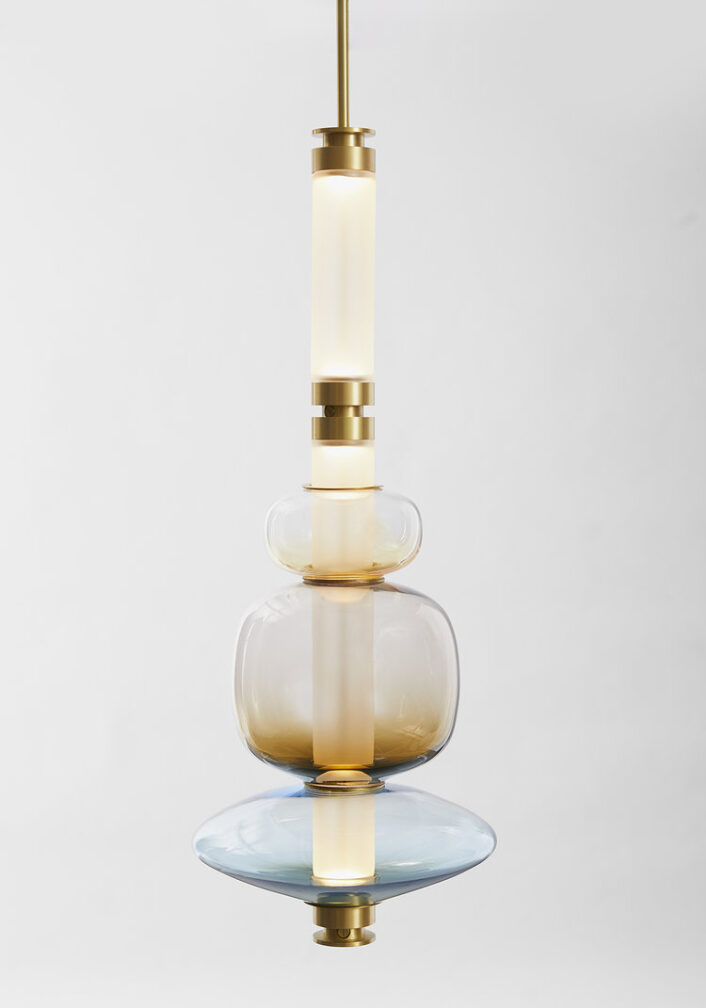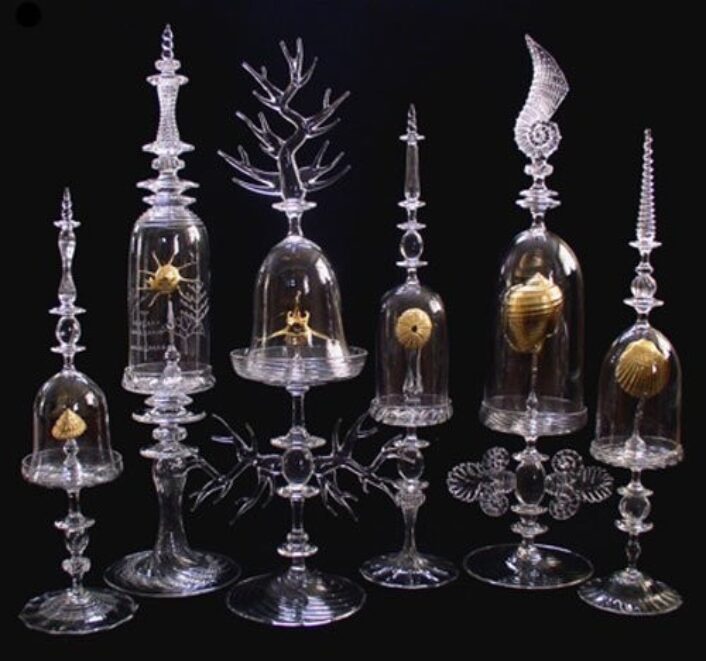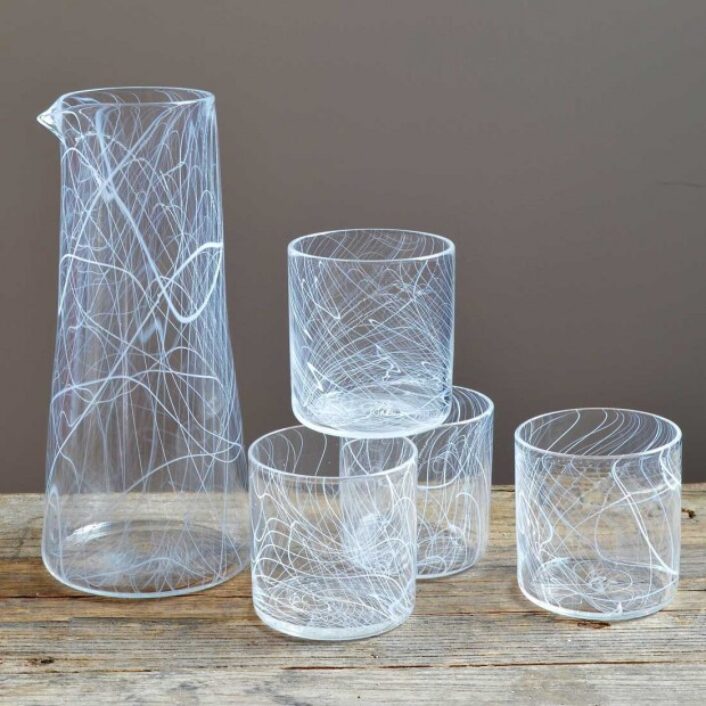Tobias Mohl at work.
Fine Art
Tobias Mohl
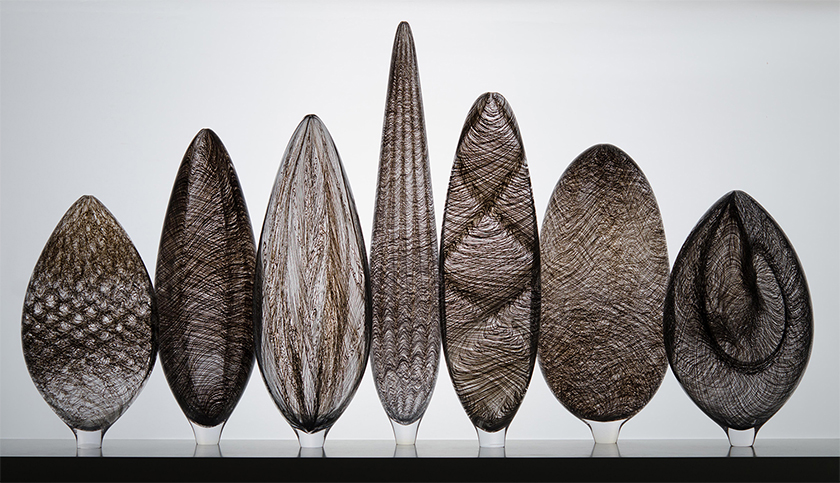
7 Part Black Twill Collection, 2016. Materials include glass, wood, and lighting fixture.
Dimensions are: 36.5″ x 70″ x 9.5″
Image courtesy of: Heller Gallery
Tobias Mohl is a modernist who creates amazing glass vessels which at first glance appear to be subtle… however, they are anything but simple! Mohl’s pieces are complex and perfectly understated in both color and form. The Danish glass maker is part of an important generation of Danish glass makers who, in the 1990s, achieved international recognition for their advanced technical innovations. In particular, Mohl’s work strives to marry Venetian techniques with a Scandinavian manner and philosophy.
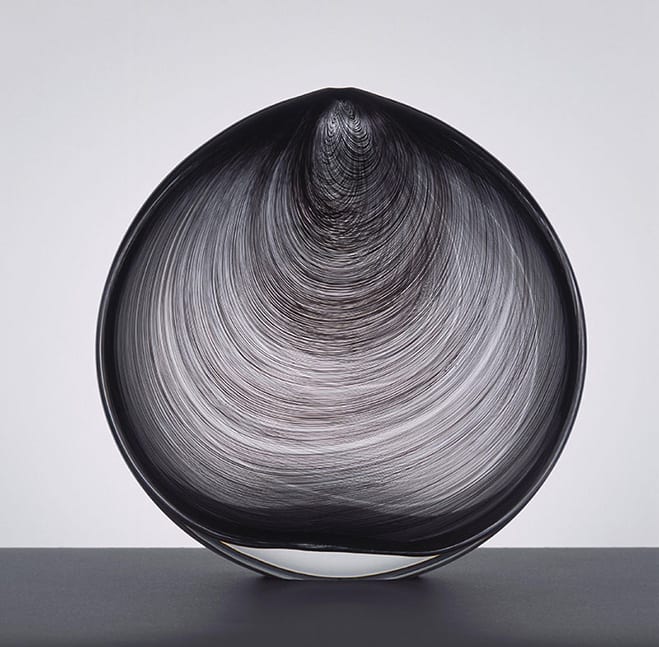
“Blacknet 3”
Image courtesy of: The 189
For Mohl, limiting the colors he uses within an individual piece allows him to test his design skills. He says, “Limiting your color palette in such a way requires you to focus on tone and texture to generate something visually appealing.” Crisscrossing seemingly infinite threads of color, Mohl shows the technical mastery of his craft.
Mohl has always been inspired by ceramics, especially Danish ceramics, his glass often represents functional flowing tableware that is organic in form.
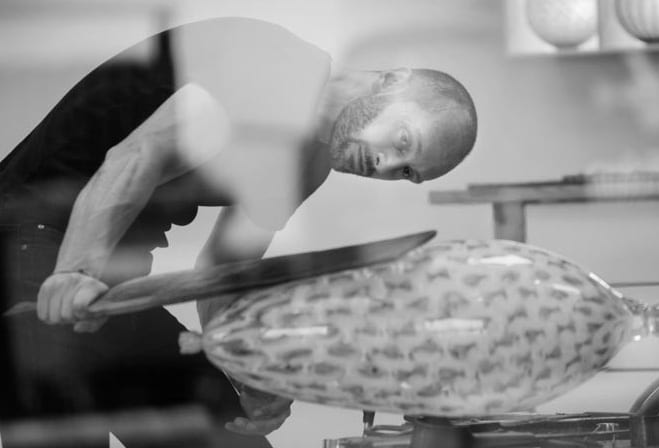
Mohl flattening a glass vessel at his Ebeltoft, Denmark workshop.
Image courtesy of: The 189
Mohl was lucky to have met the legendary glassmaker Lino Tagliapietra early in his career. The relationship had an immense influence on the development of Mohl’s designs and skills. With Tapliapiertra’s help, Mohl grew privy to a multitude of Venetian techniques.
Vastly different from the Scandinavian style of glassmaking, Mohl says it was a challenge for him to get to a point where he felt as though he had mastered the Venetian techniques and further, discovered a way to use it along with in his own style.
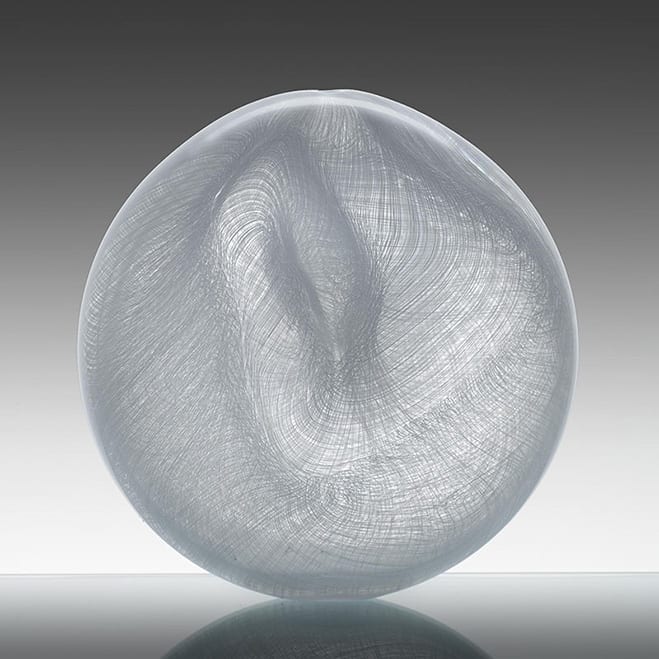
“Silkspinner 1”
Image courtesy of: The 189
Mohl’s end-products are conceived by merging two techniques. The artist uses incalmo which is the fusing of two differently colored sections of glass to form one distinct piece. The second part is cane work which involves stretching molten glass into long, thin strands and then cutting and twisting them to form intricate patterns. What ends up are vessels whose designs are reminiscent of textile work. Special is that these vessels are quite delicate and detailed intricate lace patterns.
Mohl’s work is included in prestigious collections such as the Corning Museum of Glass in Corning, New York and The Danish Museum of Decorative Art in Copenhagen, Denmark. His work is much sought-after and is displayed at top galleries such as Heller Gallery in New York City and Adrian Sassoon in London.
Mohl’s work has been called a study in the “filigrana technique.” The razor-thin lines of filigrana in different patterns, their randomness, and the complexity look like they are drawn rather than blown cane. Very few glassmakers are able to achieve this level of integrity in their vessels… Mohl is one to watch and one to admire!
